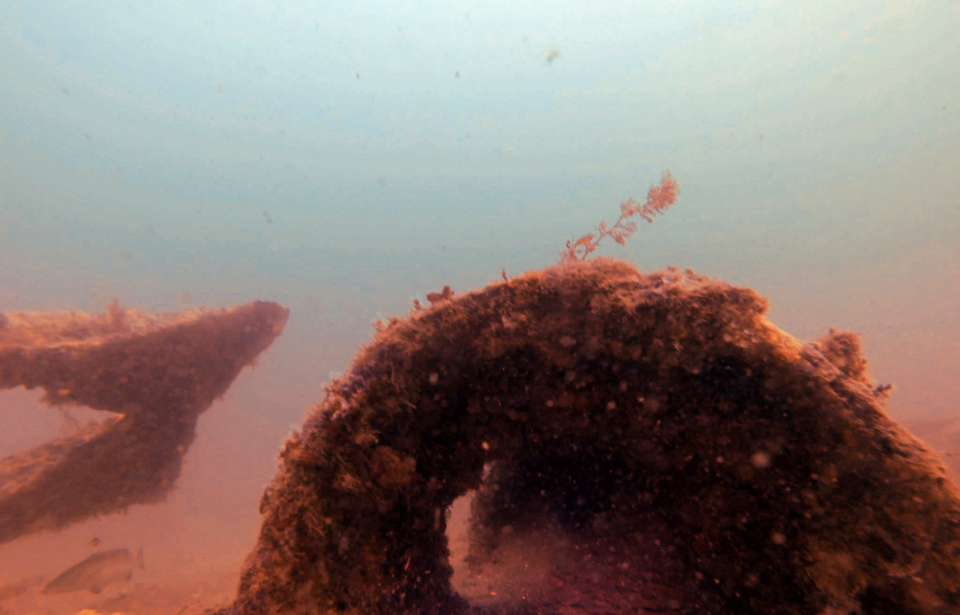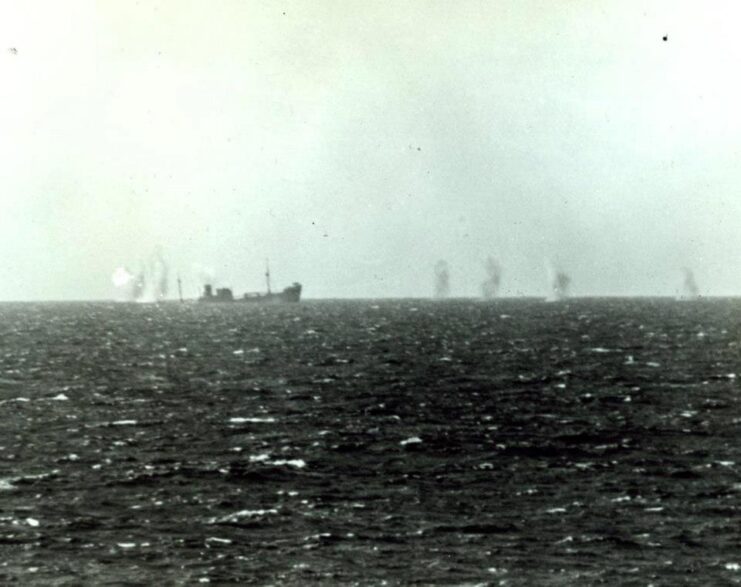Cargo from German Ship Sunk During WWII Washing Up On American Beaches

Several tons of cargo went down with German ships that were sunk by enemy action or intentionally scuttled during the Second World War. Rarely, however, do these pieces wash ashore several thousand miles away. That’s exactly what happened in Texas, with a park ranger discovering a rubber bale believed to have come from the sunken SS Rio Grande.

The SS Rio Grande was spotted by two American vessels – the USS Omaha (CL-4) and Jouett (DD-396) – off the coast of Brazil in January 1944. The vessel was carrying cobalt, tin and bales of crude rubber. Upon realizing the blockade runner had been spotted, Rio Grande‘s German crew abandoned ship and attempted to scuttle her.
Omaha and Jouett ultimately sank the vessel, firing upon her until she sank to the ocean floor, with her cargo still onboard.
According to officials in Brazil and the United States, the roughly 200-pound rubber bales have begun washing ashore, nearly 80 years after the SS Rio Grande was sunk. While they’re harmless to humans, they pose a risk to vehicles that may be traversing the beaches.
“As the SS Rio Grande started to break up, the waterlogged rubber bales floated up from the ocean bottom and into the North Brazil current,” reads a 2020 Facebook post by the Padre Island National Seashore. “From there, the bales stayed afloat in [a] series of northbound currents along the coast of South and Central America, around the Yucatan and then finally into the Gulf of Mexico.”
Recently, a rubber bale washed ashore in Texas in May 2023. A video posted by Texas Parks and Wildlife shows a barnacle-covered block in Mustang Island State Park, just outside of Corpus Christi. Park Ranger Eric Ehrlich, who made the discovery, initially had no idea the piece of cargo came from the sunken German vessel.
As with other trash that washes up on the beach, the rubber is destined for the landfill. “If someone wants it for research or something, and they get to me before we get it in the dumpster, I’m happy to let them have it,” Ehrlich tells the Houston Chronicle. “I have no use for it and it’s kind of just taking up space on the beach.”
He adds, “The most fascinating part is that it stayed trapped in that boat for a really long time while the boat disintegrated in the saltwater. We can date things based on what marine life is attached to it.”
just spotted on the texan coast:
rubber bales from sunken nazi german wwii ship
(which originally sank off the coast of brazil in 1944) pic.twitter.com/fJFM0iJM7p— ian bremmer (@ianbremmer) May 12, 2023
Outside of Texas, the rubber bales from the SS Rio Grande have also washed ashore in Florida, with a number being noted in Palm Beach. This led researchers to publish a study to the journal Marine Environmental Research, in which they analyzed similar discoveries.
Rubber was an integral part of the war effort for both the Allied and Axis powers. Its use led to the development of synthetic rubber, as militaries quickly learned there wasn’t enough natural material to go around.
